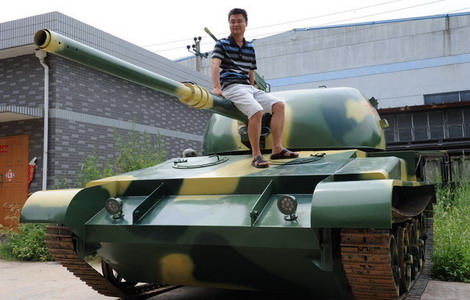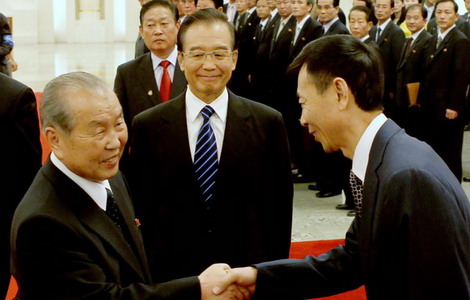Hope Project founder speaks out on charity
Updated: 2011-09-27 08:03
By Shi Jing (China Daily)
|
|||||||||||
SHANGHAI - Hope Project has been making a difference in the lives of students from impoverished families for 20 years. It has been one of the country's most successful charities and has attracted millions of Chinese people since the 1990s.
During the late 1980s, more than 1 million primary students didn't attend school because their families could not afford the tuition, which was then only about 50 yuan a year, less than $8.
Xu Yongguang, an aficionado of old Chinese poems, was one of the founding members of Hope Project in 1989. He spent two months in the villages in South China's Guangxi Zhuang autonomous region to gain a thorough understanding of the children in the remote areas and their education levels.
He was surprised to find that no one from a village of 2,000 people had attended junior high school since 1949. Of the 250 who did go to school before, only 10 percent made it to their graduation from primary school.
The village children who craved knowledge moved Xu, and so he set out to help them.
Through 2009, Hope Project collected 5.67 billion yuan ($887.6 million) in donations and built 15,940 primary schools. It also helped fund more than 3.4 million students in rural areas to continue their education.
Those achievements do not mean that Xu's work was easy. Starting in 1994, the Hong Kong-based Next Magazine asked continuous questions about the whereabouts of the money raised by Hope Project. Lawyers' questions in a six-year legal proceeding filled more than 500 pages, but Xu won the case.
He resigned from the Hope Project in 2001 because, he said, he was not content with the systems overseeing the charity organization. He resigned as deputy director of the China Charity Federation in 2005 because of his differing opinion about the reform of the charity system.
"I only do things that I am capable of doing," Xu said. "Otherwise, it is just a waste of my time."
Xu is outspoken about his discontent with the high-profile philanthropy practiced by Chen Guangbiao, chairman of Jiangsu Huangpu Recycling Resources Co.
Chen gave money directly to earthquake survivors and to some volunteers in Yingjiang county, Yunnan province, earlier this year. The Nanfang Daily newspaper reported that the volunteers were specifically asked to hold up the money for a photo.
Xu said in an interview with China Youth Daily early last year that what Chen has been doing is an individual "charity show". Chen has stressed that his actions stem only from the incompleteness of the Chinese charity system.
Xu wasn't impressed when he heard that Hong Kong-based Phoenix TV honoring Chen for his contributions to Chinese charity.
"During the Wenchuan earthquake in 2008, Chen was indeed a hero with regard to his generosity. I showed due respect for his righteousness and he deserved people's applause then," Xu said. "But now awarding him will allude to the modern charity system stepping back to a traditional one. The Chinese charity system has been undergoing many ups and downs and is not stable yet. It cannot afford to be racked in this way."
Xu welcomes the debate among philanthropists about the best way to give back to the country. "Actually we argue every time we meet and I have been persuading him to follow the modern charity track that requires more professional management."
Hot Topics
Libya conflict, Gaddafi, Oil spill, Palace Museum scandal, Inflation, Japan's new PM, Trapped miners, Mooncake tax, Weekly photos, Hurricane Irene
Editor's Picks

|

|

|

|

|

|







